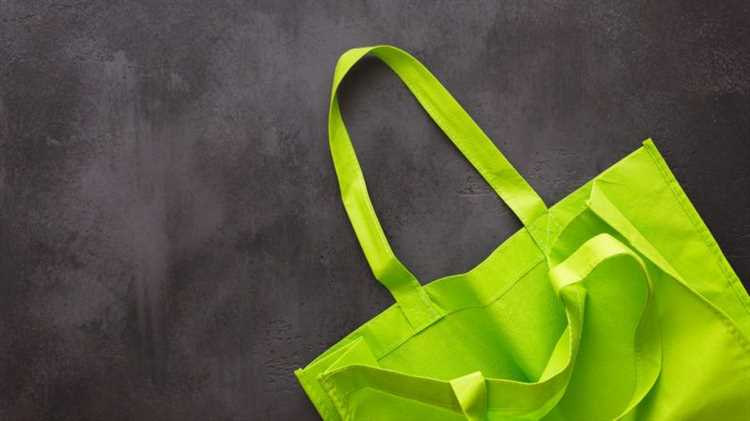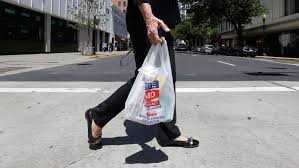
Plastic bags have become one of the most harmful and pervasive forms of pollution in the world. These single-use bags not only litter our streets and landscapes, but they also pose a significant threat to wildlife and marine ecosystems. In recent years, many cities and countries have taken steps to address this issue by implementing plastic bag bans.
However, the first city to take action against plastic bags may surprise you. In 2002, the city of Dhaka, the capital of Bangladesh, became the first city in the world to ban plastic bags. The decision was made in response to the devastating impact of plastic pollution on the city’s drainage systems and surrounding rivers.
With a population of over 15 million people, Dhaka was facing a major environmental crisis. Plastic bags were clogging the city’s already strained drainage systems, leading to frequent flooding during the rainy season. Additionally, the bags were being dumped into the city’s rivers, causing pollution and posing a threat to marine life.
In an effort to combat these issues, the government of Bangladesh implemented the plastic bag ban, imposing strict penalties for using or producing plastic bags. The ban has been largely successful, and other cities and countries around the world have since followed suit, recognizing the urgent need to reduce plastic pollution.
- The History of the First Plastic Bag Ban
- The Birth of the Movement
- The Ripple Effect
- The Impact of Plastic Bags on the Environment
- 1. Pollution
- 2. Resource Depletion
- The First City that Took Action Against Plastic Bags
- A Pioneering Move
- The Path to Change
- Encouraging Alternatives
- A Global Inspiration
- How the Ban on Plastic Bags Was Implemented
- 1. Legislative Action
- 2. Public Awareness Campaign
- The Success and Challenges of the Plastic Bag Ban
- Successes
- Challenges
- The Global Spread of Plastic Bag Bans
- Early Adopters
- Environmental Impact
- Expanding the Movement
- Question-answer:
- What is the city that first banned plastic bags?
- When did San Francisco ban plastic bags?
- Why did San Francisco ban plastic bags?
- Was San Francisco the first city in the world to ban plastic bags?
- Has the ban on plastic bags in San Francisco been successful?
The History of the First Plastic Bag Ban
In recent years, there has been a growing concern about the environmental impact of plastic bags. These single-use bags have been causing significant harm to our planet, contributing to pollution and posing a threat to wildlife. To address this issue, many cities around the world have introduced bans on plastic bags. But where did it all start? Which city was the first to take action?
The Birth of the Movement
The first city to ban plastic bags was Modbury, a small town in South Australia. In 2003, a local resident named Rebecca Hosking was inspired by a documentary about the impact of plastic bags on marine life and decided to take action. She approached the local council and gathered support from the community to implement a ban on plastic bags.
The ban was officially implemented in 2007, making Modbury the first city in the world to prohibit the use of plastic bags. The decision received national and international attention, sparking a global movement to tackle the issue of plastic bag pollution.
The Ripple Effect
The success of Modbury’s plastic bag ban inspired other cities and countries to follow suit. San Francisco became the first city in the United States to ban plastic bags in 2007, just a few months after Modbury’s ban. Other cities in Australia, such as Adelaide and Sydney, also introduced their own bans, while Ireland became the first country in the world to implement a nationwide plastic bag levy in 2002.
Since then, the movement has continued to spread, with cities and countries around the world recognizing the need to take action. Plastic bag bans and levies have been implemented in many places, ranging from Kenya to China, from Hawaii to England. These bans have not only reduced plastic bag usage but have also raised awareness about the impact of plastic pollution on the environment.
The history of the first plastic bag ban serves as a reminder of how grassroots movements can create positive change. It shows that a single individual’s determination can inspire an entire community and even the world to take action. Thanks to the efforts of Modbury and other trailblazers, the fight against plastic bag pollution continues to gain momentum, bringing us closer to a cleaner and more sustainable future.
The Impact of Plastic Bags on the Environment
Plastic bags have become an integral part of modern life, but their convenience comes at a high cost to the environment. The environmental impact of plastic bags is severe and wide-ranging, affecting ecosystems and human health.
1. Pollution
One of the most significant impacts of plastic bags is pollution. Plastic bags are not biodegradable, meaning they can take centuries to decompose in the environment. As a result, plastic bags accumulate in landfills and water bodies, polluting the surrounding ecosystems. Marine animals frequently mistake plastic bags for food, leading to ingestion and entanglement, which often results in injury or death.
2. Resource Depletion
Plastic bags are made from non-renewable resources like oil and natural gas. The production of plastic bags contributes to resource depletion and increased carbon emissions. Furthermore, the manufacturing process of plastic bags involves the release of harmful chemicals and greenhouse gases, further exacerbating climate change.
The negative impact of plastic bags on the environment has led many cities and countries to implement bans or restrictions on their usage. By promoting the use of reusable bags or alternative materials, these initiatives aim to reduce pollution, conserve resources, and protect the environment for future generations.
The First City that Took Action Against Plastic Bags
Plastic bags have become a major environmental concern due to their harmful impact on ecosystems. However, it was not until recent years that cities around the world started implementing bans on plastic bags. One city that stood out in taking action against this plastic menace was San Francisco.
A Pioneering Move

In 2007, San Francisco became the first city in the United States to ban plastic bags. This groundbreaking move sent shockwaves across the country and served as a wake-up call for other cities facing similar environmental challenges.
The Path to Change
San Francisco’s ban on plastic bags was not an overnight decision. The city spent several years conducting studies, consulting experts, and engaging with the public to garner support for the ban. This process allowed the city to develop a comprehensive and effective strategy to tackle the issue.
The ban initially applied to large grocery stores and pharmacies, but it was later expanded to include all retail establishments. This move ensured that all businesses within the city were aligned with the vision of reducing plastic waste.
Encouraging Alternatives
To support the ban, San Francisco also implemented measures to encourage the use of reusable bags. The city distributed free reusable bags to residents, launched educational campaigns to promote their use, and encouraged businesses to offer incentives to customers who brought their own bags.
Furthermore, San Francisco encouraged the adoption of biodegradable bags as an alternative to traditional plastic bags. These bags are made from plant-based materials and break down much faster than their plastic counterparts, reducing their impact on the environment.
A Global Inspiration
San Francisco’s ban on plastic bags served as a source of inspiration for other cities and countries around the world. It showcased that taking action against plastic bags is not only necessary but also feasible.
Since San Francisco’s pioneering move, numerous cities across the United States, Europe, and other parts of the world have followed suit and implemented their own plastic bag bans. This global movement highlights the power of collective action in addressing environmental challenges.
- Paris, France
- Beijing, China
- Mexico City, Mexico
- Toronto, Canada
These cities are just a few examples of the many places that have recognized the urgency to combat plastic pollution and have taken decisive steps to ban plastic bags.
In conclusion, San Francisco played a crucial role in being the first city to take action against plastic bags. Its ban served as a catalyst for change, inspiring other cities and countries to follow suit. Through these collective efforts, we can work towards a cleaner, greener future.
How the Ban on Plastic Bags Was Implemented
In order to tackle the problem of plastic pollution, some cities around the world have implemented a ban on plastic bags. These bans aim to reduce the use of single-use plastic bags and encourage the adoption of more sustainable alternatives. While the specific details may vary between cities, the general process of implementing a ban on plastic bags typically involves several key steps.
1. Legislative Action
The first step in implementing a ban on plastic bags is the passage of legislation. This involves introducing a bill or ordinance at the local level that outlines the ban and its specifics, such as the start date, scope, and penalties for non-compliance. The legislation may also include exemptions for certain types of bags, such as those used for certain food items or medical purposes.
2. Public Awareness Campaign
Once the legislation is in place, a comprehensive public awareness campaign is often launched to inform the community about the upcoming ban. This campaign may include advertisements, educational materials, and community events to raise awareness about the environmental impacts of plastic bags and promote alternative bag options.
3. Transition Period
Following the passage of the ban, there is typically a transition period during which businesses and consumers are given time to adjust to the new regulations. This period allows businesses to use up their existing stock of plastic bags and make the necessary changes to comply with the ban. Consumers are encouraged to switch to reusable bags and provided with information on where to obtain them.
4. Enforcement and Compliance
Once the transition period is over, enforcement of the ban begins. This may involve inspections, warnings, and fines for non-compliant businesses. The goal is to ensure widespread compliance with the ban and minimize the continued use of plastic bags within the city.
5. Monitoring and Evaluation
After the ban has been in effect for some time, it is important to monitor its impact and evaluate its effectiveness. This may involve collecting data on bag usage, litter levels, and public opinion to assess the overall success of the ban. Based on the findings, adjustments may be made to the ban or additional measures may be implemented to further reduce plastic bag consumption.
In conclusion, the implementation of a ban on plastic bags requires legislative action, public awareness campaigns, a transition period, enforcement and compliance efforts, as well as ongoing monitoring and evaluation. By taking these steps, cities can move towards a more sustainable future with reduced plastic pollution.
The Success and Challenges of the Plastic Bag Ban
The implementation of plastic bag bans in cities worldwide has been met with both success and challenges. While the intention behind these bans is noble, the actual implementation has faced hurdles that need to be addressed for a seamless transition to a greener future.
Successes
One of the notable successes of the plastic bag ban is the reduction in plastic waste. By prohibiting single-use plastic bags, cities have been able to significantly decrease the amount of plastic pollution that ends up in landfills and oceans. This reduction in plastic waste has positive environmental impacts, as it prevents harm to wildlife and reduces greenhouse gas emissions associated with plastic production.
Another success is the increased awareness and adoption of reusable bags. The plastic bag ban has prompted individuals to seek alternatives, such as reusable bags made from eco-friendly materials. This shift in consumer behavior has not only reduced plastic waste but also instilled a sense of responsibility towards the environment.
Challenges
One of the major challenges of the plastic bag ban is the potential negative impact on businesses. Small retailers, in particular, may find it difficult to adapt to the ban due to increased costs associated with providing alternative packaging options. Additionally, customers may face inconvenience if they forget to bring their own bags and need to purchase new ones.
Enforcement of the ban is another challenge that cities face. Clearly communicating the ban and ensuring compliance can be complex, requiring resources for education, monitoring, and penalties for violators. Some cities have reported an initial resistance from both businesses and individuals, which highlights the need for effective communication and support during the transition period.
| Successes | Challenges |
|---|---|
| Reduction in plastic waste | Potential negative impact on businesses |
| Increased adoption of reusable bags | Enforcement and compliance |
In conclusion, the plastic bag ban has achieved significant successes by reducing plastic waste and promoting the use of reusable alternatives. However, challenges such as the potential impact on businesses and enforcement issues need to be addressed for a successful transition towards a greener future.
The Global Spread of Plastic Bag Bans
Plastic bags have become a major environmental concern across the globe, leading many cities and countries to take action and ban their use. The movement to ban plastic bags has gained traction over the years, with an increasing number of locations implementing regulations to reduce plastic waste and promote sustainability.
Early Adopters

The first city to ban plastic bags was San Francisco in 2007. This groundbreaking move set a precedent for other cities and countries to follow suit. Soon after, a number of cities in Australia, Europe, and Africa implemented their own bans on plastic bags. With time, the movement gained momentum and spread to other continents.
Environmental Impact
The environmental impact of plastic bags is immense. They contribute to pollution, harm wildlife, and take hundreds of years to decompose. As a result, governments and organizations around the world have recognized the need to take action and reduce plastic bag usage.
Banning plastic bags has led to a significant reduction in plastic waste and litter. It has also encouraged the use of reusable bags, promoting a shift towards more sustainable consumer habits. In addition, many countries that have implemented bag bans have seen a decrease in plastic bag production and a rise in recycling rates.
It is worth noting, however, that the effectiveness of plastic bag bans can vary depending on factors such as enforcement and public awareness. Some jurisdictions have faced challenges in implementing and enforcing these bans.
Expanding the Movement
The bans on plastic bags have continued to gain momentum, with an increasing number of countries and cities adopting similar regulations. Some countries have gone even further by implementing bans on other single-use plastic items, such as straws and cutlery.
While plastic bag bans alone may not solve the global plastic pollution problem, they are an important step in the right direction. By raising awareness and encouraging sustainable alternatives, these bans play a crucial role in protecting our planet.
Question-answer:
What is the city that first banned plastic bags?
The city that first banned plastic bags is San Francisco, California.
When did San Francisco ban plastic bags?
San Francisco banned plastic bags in 2007.
Why did San Francisco ban plastic bags?
San Francisco banned plastic bags to reduce plastic pollution and promote environmental sustainability.
Was San Francisco the first city in the world to ban plastic bags?
No, San Francisco was not the first city in the world to ban plastic bags. However, it was the first city in the United States to implement such a ban.
Has the ban on plastic bags in San Francisco been successful?
Yes, the ban on plastic bags in San Francisco has been successful in reducing plastic pollution. It has also encouraged other cities and countries to adopt similar bans.